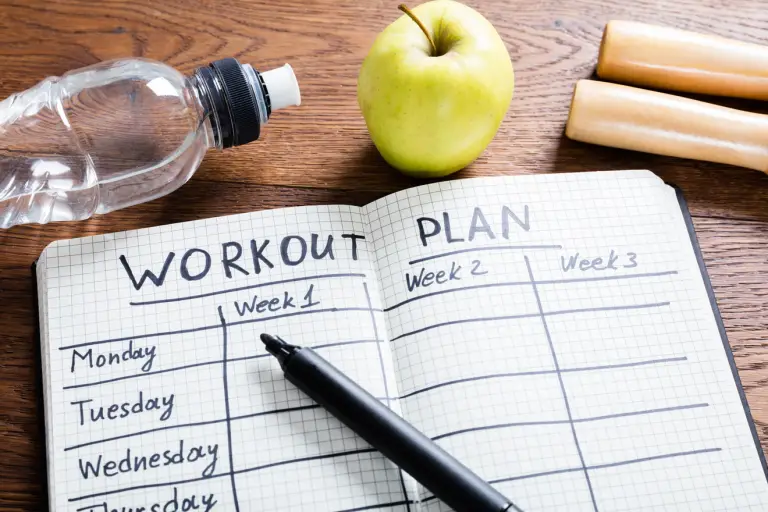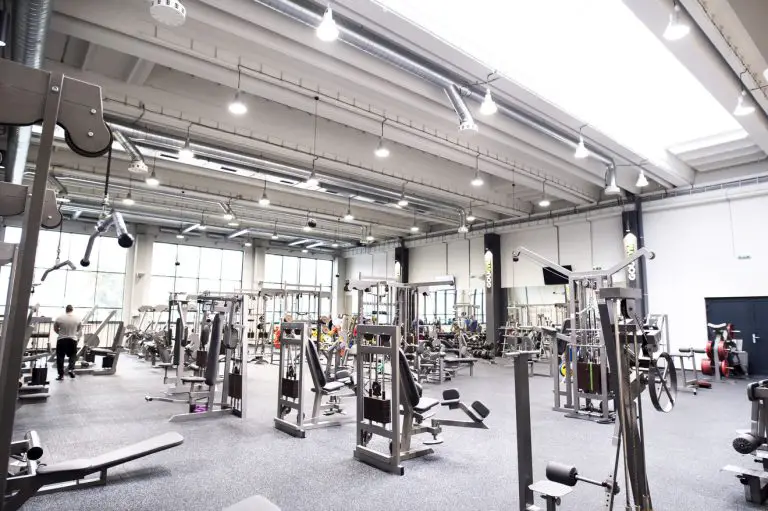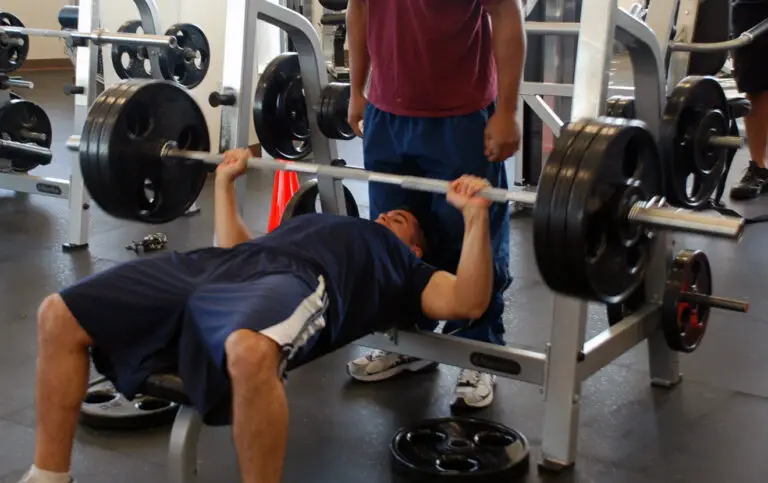Top tips for faster muscle recovery after weight training
Getting the most out of your weight training routine isn’t just about lifting heavier or doing more reps. Effective recovery between workouts is essential for muscle growth, reducing soreness, and preventing injuries. By focusing on key recovery strategies, you can optimize your gains and feel stronger for your next session. Here’s how to make the most of your recovery time.
1. Prioritize hydration
Hydration is often overlooked, but it’s one of the most critical factors in muscle recovery. Muscles are about 75% water, and staying hydrated helps maintain the right balance of electrolytes and fluids. This balance is essential for muscle function and repair.
To improve hydration, start your day with a glass of water and continue drinking throughout the day. During and after your workouts, aim to drink water regularly. If you’re doing intense or prolonged training, consider a drink that contains electrolytes, such as a sports drink, to replace the salts lost through sweat. Remember, dehydration can increase muscle cramps and delay recovery, so stay ahead of it by making hydration a habit.
Additionally, you can monitor your hydration levels by checking the color of your urine. Pale yellow indicates proper hydration, while darker shades may mean you need more fluids. If you struggle to remember to drink water, try setting reminders on your phone or using a water bottle with time markers.
2. Get enough quality sleep
Sleep is when your muscles do most of their recovery work. Deep sleep stages allow your body to release growth hormones that aid in muscle repair and growth. However, it’s not just about the quantity of sleep but also its quality. Sleep disruptions can reduce the effectiveness of this recovery process.
To enhance sleep quality, establish a consistent sleep routine by going to bed and waking up at the same time every day, even on weekends. Create a sleep-friendly environment by keeping your bedroom dark, quiet, and cool. Using blackout curtains, a white noise machine, or an eye mask can help reduce disturbances.
Additionally, limit caffeine and heavy meals in the hours leading up to bedtime. Consider practices like mindfulness meditation or deep breathing exercises to relax your mind and body before bed. This will help you fall asleep faster and reach deeper sleep stages, where muscle repair happens most effectively.
3. Fuel your muscles with proper nutrition
Nutrition plays a pivotal role in muscle recovery, and protein is the key nutrient required for repairing muscle tissues that break down during weight training. Consuming adequate protein throughout the day, especially after a workout, helps your body rebuild muscle fibers stronger than before.
To optimize muscle recovery, aim to consume a balanced meal or snack that includes both protein and carbohydrates within 30 to 60 minutes post-workout. Carbohydrates help replenish glycogen stores, which are depleted during exercise, while protein provides the building blocks (amino acids) needed for muscle repair.
While whole foods like lean meats, fish, eggs, beans, and legumes are excellent sources of protein, they aren’t always convenient—especially when you’re on the go. This is where protein bars can be an effective alternative. High-quality protein bars are designed to provide a substantial amount of protein (15 to 20 grams or more) in a portable and easy-to-consume form. This makes them ideal for those who need a quick snack after a workout or between meals.
When choosing a protein bar, consider the following:
- Look for minimal added sugars: Some bars contain high levels of sugar, which can lead to unwanted calorie intake without providing significant nutritional benefits.
- Check for quality ingredients: Aim for bars made with whole food ingredients like nuts, seeds, oats, and natural sweeteners, which provide additional nutrients and fiber.
- Consider the protein source: Whey protein is highly bioavailable, meaning it is quickly absorbed by the body, making it a great choice for post-workout recovery. Plant-based proteins like pea or soy are also effective, especially for those with dietary restrictions or preferences.
One option of protein bar you could try is Built, which comes in multiple interesting flavors.
In addition to protein bars, other convenient snacks that support muscle recovery include high-protein milk shakes, Greek yogurts, cottage cheeses, or smoothies made with protein powder. The goal is to find what works best for you in terms of taste, convenience, and nutritional content.
Remember, while protein bars can be a great option for convenience, they shouldn’t replace whole meals or a varied diet rich in fresh, nutrient-dense foods. They are an excellent supplement to help meet your protein needs when you’re busy or in a pinch, but whole foods should remain your primary source of nutrition.
4. Incorporate active recovery techniques
Active recovery involves low-intensity exercises that help promote blood flow to your muscles without causing additional strain. This approach can help reduce muscle stiffness and soreness after weight training.
Consider incorporating light stretching, yoga, or foam rolling into your post-workout routine. These activities can help maintain flexibility, reduce tension, and improve circulation to muscle tissues. Aim to spend at least 10 to 15 minutes on active recovery after each session.
Foam rolling, in particular, helps release tight muscles and trigger points, improving mobility and reducing the risk of injuries. You can also try activities like swimming or walking on your off days, which keep you moving without overworking your muscles. Consistent active recovery practices can make a significant difference in how you feel and perform in your next workout.
5. Use supplements wisely
While whole foods should be your primary source of nutrition, supplements can be beneficial for enhancing muscle recovery. Branched-Chain Amino Acids (BCAAs), for example, are popular for reducing muscle soreness and accelerating muscle repair. They are particularly useful during intense workouts when muscles are under considerable strain.
Creatine is another effective supplement that supports muscle recovery by increasing the availability of energy during high-intensity exercise, allowing for improved strength and reduced fatigue. It also helps in the regeneration of ATP, the primary energy carrier in muscle cells, aiding faster recovery between sets and overall training sessions.
Magnesium is a crucial mineral for muscle relaxation and preventing cramps. A magnesium deficiency can lead to increased muscle cramps and soreness, especially after intense workouts. Taking a magnesium supplement, especially if you sweat a lot, can support muscle relaxation and improve sleep quality, both of which are vital for recovery.
Omega-3 fatty acids, found in fish oil, have anti-inflammatory properties that can help reduce muscle soreness and speed up recovery. They also support overall joint health, which is beneficial for weight training enthusiasts who put regular stress on their joints.
Remember that supplements should not replace a balanced diet but serve to complement it. Always consult a healthcare professional before starting any new supplements, especially if you have any underlying health conditions or are on medication.
6. Listen to your body
Your body is constantly sending you signals, especially after intense weight training. Paying attention to these signals can help you avoid overtraining, which can lead to burnout, injuries, and stalled progress.
If you feel constant fatigue, excessive soreness, or a lack of motivation, it might be time to dial back your training intensity or take an extra rest day. Rest is crucial for muscle recovery, allowing time for damaged muscle fibers to repair and grow stronger.
Balancing your training with adequate rest doesn’t mean doing nothing; it can also mean engaging in lighter activities like walking, yoga, or enjoying a day with reduced physical activity. When you listen to your body, you’re more likely to recover faster and come back stronger. Keep a fitness journal to track how you feel after workouts and adjust your training accordingly.
Final remarks
Maximizing your muscle recovery after weight training is all about making smart choices both in and out of the gym. By prioritizing hydration, quality sleep, nutrition, and active recovery techniques, you’ll ensure your body is always ready for the next challenge. Incorporate these strategies consistently, and you should notice faster recovery, reduced soreness, and ultimately, greater gains.







